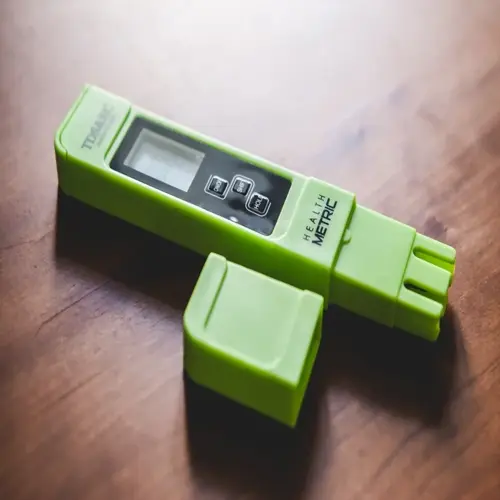How often should I test my aquarium water?

Written by
Susan Taylor
Reviewed by
Prof. Henry Webster, Ph.D.Appropriate testing frequency keeps the fish in your tank safe from unseen toxins. Most aquarists do not test the water frequently enough to catch the ammonia spikes that can be fatal. I learned the hard way after losing prized cichlids due to unseen nitrite. Consistency in scheduled testing will prevent this type of occurrence from happening. Be sure that your fish have the benefit of frequent water testing for their survival.
New aquariums require daily ammonia and nitrite testing during the cycling process. The all-important period of four weeks works at developing the beneficial bacteria. I test the quarantine tanks every morning before I feed. The spikes can often occur overnight after setup. Never skip the test, since this period is very sensitive.
Common tanks must be checked weekly for ammonia and biweekly for nitrates. Established filters are generally better at handling wastes, but failures do occur unexpectedly. The routine in my community tank finds the problems on Tuesdays. Testing the aquarium after changing water will generally show that the water parameters are stable. Consistency keeps surprises from happening.
Emergency Triggers
- Test immediately after fish deaths or illness
- Check water during filter malfunctions
- Retest after medication treatments
Routine Maintenance
- Choose one fixed day weekly for standard checks
- Test before water changes to identify needs
- Record results in a dedicated logbook
Seasonal Adjustments
- Increase summer testing in outdoor ponds
- Reduce winter checks except for heated tanks
- Monitor temperature swings affecting toxin levels
Planted tanks keep nitrate testing to a minimum, but not ammonia testing. The growth of plants consumes excess nitrates and lowers the frequency. My very heavily planted tank requires monthly nitrate testing. But plants cannot prevent sudden surges of ammonia from decomposing matter. Many toxins should be tested weekly.
Overstocked ponds require triple weekly testing due to high bioloads: the more fish, the more waste, which overwhelms the filters. My goldfish requires checks on Monday, Wednesday, and Friday. Stocking density requires extra testing. Overcrowding requires additional attention.
Establish your own testing schedule today. We take advantage of new tank protocols, where applicable, and weekly routines for established tanks. Just remember, emergency triggers always prompt an immediate check. A simple habit like this can help your fish thrive.
Read the full article: 7 Essential Aquarium Water Testing Tips
